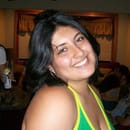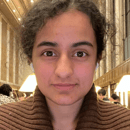On the weekend of October 20-22, 2023, Seeds of Fortune held an event on- and off-campus at Columbia University and Barnard College for BIPOC high school students applying to college. Seeds of Fortune, also just known as ‘Seeds,’ is an online platform that helps marginalized and traditionally underrepresented students in high school prepare for college by helping them apply for scholarships, build financial skills like saving and budgeting, and career opportunities like externships. Seeds was founded by Nitiya Walker, who writes on the Seeds website that she, “believed it was my duty to help ease the financial burdens of those in my generation; so I created a scholarship program to help teen girls obtain local and national scholarships.”
Over 100 high schoolers attended the event as part of Seeds’ 6-month College Prep Leadership Program. The event featured various opportunities including meeting admissions officers, university student panels, and a private networking dinner. The Her Campus Columbia/Barnard team was invited to sit in on panels featuring students from both Barnard College and Columbia University who were connected with Seeds of Fortune, either since high school or upon entering college. We were then able to interview those students about how their experiences with Seeds of Fortune have impacted their time at Barnard and Columbia, and about the importance of programs that meet the needs of underserved students who are pursuing higher education.
Below is our interview with Sikirat (she/her) and Renae (she/her), students at Columbia University. Sikirat is a junior studying Business Administration and Political Science, and Renae is a junior studying Cognitive Science with a minor in Physics.
Read our interview with Seeds’ students at Barnard College here.
Her Campus: Could you talk about your relationship with Seeds of Fortune?
Sikirat: I’m a University Scholar. I actually joined when I was in undergrad, so I didn’t join the Prep Program, but actually met Nitiya at a previous event and I learned so much about Seeds of Fortune.I knew I needed to be a part of this mission.
Renae: I’m a University Scholar right now, but I also did the Prep Scholar Program when I was in high school [from] my sophomore year into my senior year.
HC: What’s like a skill that you have learned or developed at Seeds of Fortune that you found to be important as a student at Columbia University?
R: I think especially in terms of applying to college, [Seeds] tried to really instill this idea of financial literacy. I think that’s really important. Having your finances together, the concept of networking, and really getting to know other people; [Nitiya] does a lot of really good outreach things. So yeah, [Seeds is] full of awesome information.
S: Yeah, I definitely agree. I think another huge thing is kind of the attention to that bridge program. I’ve honestly been a recipient of service for a lot of my life, and I think if it wasn’t for communities around me, I wouldn’t be able to be where I’m at now. So, being able to give back to those communities that have given so much to me, like helping younger students, helping students that currently are in high school, and students that are in a place that I was in. I want to be able to give them the resources that I wish that I had. I hosted a personal essay workshop, and a few other things, that I think Seeds of Fortune is really supportive of.
HC: What do you see as the importance of a program that is targeted towards underrepresented students, and do you see similar communities at CU?
R: Seeds, Questbridge, Gates, a lot of those little niche scholarship programs that you have to really reach out to and apply to helped me a lot. They were a really big help for me in trying to understand what my voice was, and where I wanted to go. Parents instill this whole notion of perfection — that you need to do this, and this is always expected of you. I think that this was my first time recognizing ‘Damn, I’ve done a lot. I’m actually an accomplished woman and there are things that I can do with that.’ So I think that these programs really help you recognize who you are as a person and then working to build that and to take it to greater heights.
HC: At Columbia, do you see communities like this?
R: Right now, it is great, but it is also not enough. There’s ASP [Academic Success Programs]; I love ASP. But I’m trying to figure out how much of that is Columbia’s.
HEOP is like a New York program that helps low-income high school students be able to attend college for free. It is a big part of my financial aid here at Columbia. Columbia has a specific program, ASP, during the summer for those students and a bunch of other different students like people from rural areas or people that have struggled academically. This would be for five weeks during the summer. Those students were mainly people of color and it helped me get really acclimated to the campus. I fostered a lot of relationships with my advisors or people in higher places that I honestly think have helped me to this day, who help you with financial aid. I get an exciting stipend every month and other different stipends. That’s like a really big help.
HC: What do you see as the importance of a program that is targeted towards underrepresented students, and do you see similar communities at CU?
S: We were both in HEOP and ASP programs. HEOP is a New York City higher educational opportunity program for New York City students who are disadvantaged due to lack of historical and equity. So, being part of ASP, which is Columbia’s sub-segment of HEOP, was a great way to initially be acclimated to Columbia’s culture. For me, I remember those few weeks over the summer were virtual. […] Some of my closest friends are ASP students, which I think really speaks to the longevity of the program. In Columbia, I feel like there has been a bit of attention on certain structures such as ASP and HEOP, which are mandated by New York. However, if we really think about it in terms of structures that are student dominated, we hope to see students taking initiative and addressing educational inequity as well as these issues that we see are so prevalent on our campus. I think it really speaks a lot to the fact that we’re in such close proximity to Harlem, and we [at Columbia] have the social prestige and so much money, so much monetary value, but there’s also so much misinformation and lack of knowledge on just the communities that we continue to populate on a day to day basis. So, I really hope that in the future, there’s more attention on educational opportunities, and educational equity, as well as bridging access gaps and knowledge gaps: how much you know, and how much you seek to know.
HC: Just being a student on campus you can see that a lot of students like to take responsibility and initiative to branch out to people to address those inequalities. Do you think that there’s more that the institution itself could do? What is their approach? What should they do? What do you think that they’re doing wrong?
R: I think as an institution, Columbia could do better by highlighting student groups. And I think a big part of that is to break from this prestige that they are trying to hold on to, which clearly is crumbling material. But I think it is not necessarily something that they’d want to do, and that students would. You can see that there’s this collective appreciation for the land that we’re on and our surrounding communities that I do think the administration should uphold.
S: I wish some of those student groups were more known about. I agree, and I think another thing would just be being more intentional about addressing the diversity in the student body. Not only are we in NYC, one of the most diverse places in the world, but we also have a very diverse student body where people are ethnically diverse, gender diverse, and a lot of cultural diversity. I think highlighting that is so important. I know that for all the first years Columbia has this mandated Under One Roof session that you’re involved in, which is a workshop where you have a small sub-segment of people in one classroom and you answer some questions anonymously. And it just really shows just how diverse everyone in the room is and their different cultures. It was great going through that because, at that moment, I really understood just how diverse the culture was. But I feel like after freshman year, it was never reinforced in a way that felt systematic. My huge philosophy is that systematically placed oppression is systematically undone. So structures like that seem intentional, but I just haven’t felt like I saw that again after my freshman year.
HC: How was your experience with Season of Fortune as a scholar and how did that impact the transition from high school to college?
R: I mean Seeds of Fortunate is really important to me. When I was a Seed, my class was really small. We still have a group chat and often contact each other. So it’s really interesting to see how big [Seeds has] gotten and how many people it’s able to reach. Like I said, my parents and I didn’t really know anything and it was really scary for me to apply to colleges. Seeds of Fortune really worked with me one-on-one when I needed it. You could say Seeds of Fortune is like this information bank: when I was applying to Questbridge, I didn’t know exactly what it was and my guidance counselor didn’t know because I went to a predominantly white Catholic school where they didn’t really have a lot of resources or ways to help me as a low-income, person of color. So Seeds really helped with that.
S: I agree with that. I didn’t have the opportunity to apply to be a Seeds Prep Scholar, even though I really wish that I did. Anyone who’s listening and who might be in high school, go through the process. Seeds is a great place to be. And I truly think that programs like Seeds are so important. I think the people in Seeds of Fortune do truly care about the students that they’re servicing and they’re doing it not out of obligation, but because they see what you can get and what it should look like. Honestly, I love Columbia. I think that I’ve had a great experience and I just have so many unique opportunities because of programs like Seeds that invested in supporting students who come from diverse backgrounds and students who just would not have had these opportunities if it wasn’t for this support.
HC: Is there anything more you want to add?
S: I would say apply to Seeds and support and donate to organizations like Seeds. It’s also important to just have confidence in yourself, especially being a woman of color. Sometimes you go to some classes and it’s easy to psych yourself out or just say that you don’t belong — these were thoughts that were so strong my freshman year. But it’s so important for you to realize that not only do you belong, but your voice needs to be here. I think that’s really important that empowered women empower women.



